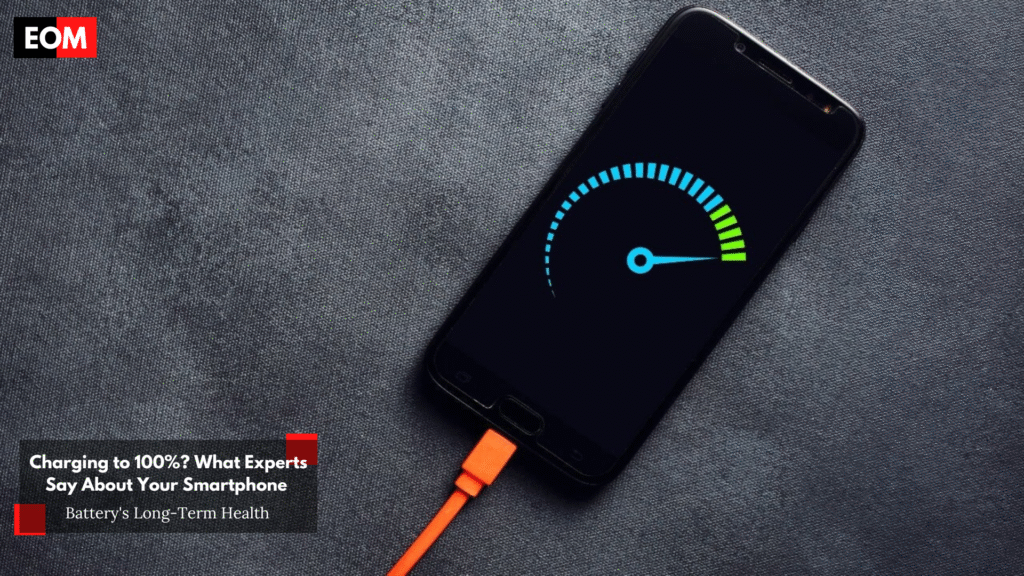Charging to 100%? What Experts Say About Your Smartphone Battery’s Long-Term Health

July 2025 – Global Tech Watch
In an age where smartphones power everything from our calendars to our commutes, battery longevity has become a growing concern—especially as consumers hold onto devices longer before upgrading. While waking up to a fully charged phone may feel like a smart habit, experts warn that charging your battery to 100% every day could be slowly eroding its lifespan.
According to energy scientists, consistently topping off your battery and keeping it plugged in overnight accelerates chemical aging—even if most users won’t notice the effects immediately.
The Science Behind the 100% Myth
Chao-Yang Wang, director of the Electrochemical Engine Center at Penn State University, explains that lithium-ion batteries—used in nearly all modern phones—degrade faster at higher charge levels.
“A battery will degrade faster if you charge it to 100% versus a slightly lower state of charge,” said Wang.
“Over time, this can result in a 10–15% faster decline in battery performance.”
Similarly, Dibakar Datta, associate professor at the New Jersey Institute of Technology, added that leaving a battery at full charge subjects it to unnecessary chemical stress. Though these habits won’t destroy your battery overnight, they may shorten its optimal life—especially for users who rely on their phones for critical daily tasks.
Best Charging Practices: The 20–80% Rule
Experts are not calling for an end to 100% charging altogether, but rather encouraging users to charge smartly:
- Maintain charge between 20% and 80% for day-to-day use.
- Avoid frequent deep discharges (i.e., letting your battery hit 0%).
- Charge to 100% only when needed—like before travel or long days away from a power source.
These small shifts can help extend the time before your battery’s health dips below the 80% threshold, which is generally when performance issues begin to surface.
Temperature & Charging Speed: The Other Battery Killers
While charge level matters, temperature is often more damaging, say experts. Both Wang and Datta emphasized that extreme heat—especially while charging—can significantly degrade battery health. Most smartphones today include thermal sensors that slow or pause charging if the phone gets too hot, but users should still avoid leaving devices in hot cars or using power banks in direct sunlight.
Additionally, fast charging, while convenient, produces more heat and can wear down a battery over time. “Slow charging is better for battery longevity,” Datta noted. If you’re not in a rush, opt for standard-speed chargers or use scheduled charging features available in many modern devices.
Built-in Tools for Battery Monitoring
The good news is that most major smartphone brands now include tools that allow users to monitor battery health and optimize charging. Apple, Samsung, and Google devices all offer settings that limit full charging or learn your charging schedule to delay hitting 100% until just before you wake up.
If your battery’s health rating falls below 80%, experts recommend considering a replacement—particularly if you notice battery drain, overheating, or lag in performance.
Conclusion: Small Habits, Longer Battery Life
Charging your phone to 100% isn’t inherently harmful—but making it a daily habit, especially overnight, may contribute to faster battery wear. By avoiding charge extremes, keeping your device at room temperature, and limiting the use of fast chargers, you can help ensure your battery lasts longer—saving you money and reducing electronic waste in the process.
The bottom line? Charge smarter, not harder. Your phone—and your future self—will thank you.

